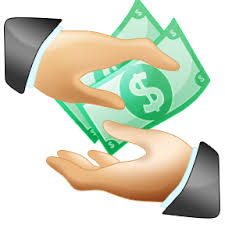Remember when you were a kid and you got an allowance for doing chores around the house? While your wealthier (or perhaps just spoiled) friends were all outside playing, you slaved raking leaves, vacuuming the stairs, cleaning the bathroom, dusting the living room, and mowing the lawn – all so that at the end of the week, you’d get that glorious, shiny $20 bill that would buy you the new Motley Crue album, some cheese fries at the mall, and maybe even a few video games at the arcade.
Now imagine you got to the end of the week and your parents didn’t pay you. They didn’t say anything about it either. They just let Friday come and go without a word and no payment.
Maybe you’d think they just forgot; give them the benefit of the doubt. So you’d diligently do all of your chores next week, thinking that instead of getting just $20, you now had $40 waiting for you! Oh man, now you could buy that new rugby, plus the Motley Crue album, cheese fries, and video games!
But once again, Friday comes and goes. No word from your parents and no payment. When you finally decide to ask them about it, they give you a non-committal answer like, “Oh yeah, sorry about that! I’ll get that to you.”
You even leave them a note reminding them a few days later, but the note gets ignored. 3 weeks later and still no payment.
Fortunately, most of us never experienced this scenario. If our parents said they’d pay us for chores, then we got paid – on time, every time. So we trusted them and kept working diligently.
Maybe you can’t relate to getting paid for chores, but what about any other job you held before becoming an entrepreneur? Did the company ever not pay you for the work you did?
It’s doubtful, since most companies wouldn’t stay in business long if they didn’t pay their employees. Plus, there’s a pesky little group called the Department of Labor (DOL), which would have a heyday with a company who wasn’t paying their employees.
So why now as entrepreneurs – as grown up, mature business people – do we think it’s ok not to pay the people who work for us?
We ask our affiliates and JV partners to promote for us, but then we don’t pay them (or if we do pay them, it’s several weeks or months late).
We run contests and launches and promise big prizes to our top 3 partners. But when the launch is over, we don’t pay out the prizes, and hope that the winners will eventually just forget about it.
We hire people to write copy for us, build our websites, create banners and other graphics for us, but when we get their invoice, we ignore the due date.
We hire companies to run our affiliate programs – we even sign contracts that have all of the terms laid out before us – clear as day – but somehow, we get amnesia when it comes time to pay. And we ignore the reminder emails that are sent to us.
Late payments or a complete failure to pay is a massive problem in the Internet Marketing industry. But why is that?
When everyone is posting pictures of their new Lamborghini, or their new beach house, or the latest party they attended with Richard Branson, why is it that so many people can’t seem to afford to pay the people who got them there, or pay them on time?
Do we do it because we know we can get away with it?
Internet Marketing is still the Wild, Wild West when it comes to regulation and policing. Couple that with the fact that the industry is made up of individual entrepreneurs and very small businesses, and no one has the time to lawyer up or pursue a case through the DOL if they don’t get paid.
Do we do it because we’re just grossly disorganized, and “forget” to pay?
Or do we do it out of pure selfishness? We just don’t make paying people a priority.
Instead, we spend our time on what’s important to us – creating more products or doing that webinar or spending the day surfing – and we forget that other people are depending on our payment to pay their own bills and their own people and their own kid’s college education.
It’s time for the Internet Marketing industry to grow up and realize that paying people on time, every time is not only good business, it’s also a glaring reflection of our personal integrity and ethics.
And for an industry that generally despises government intervention and regulation, we would be wise to start doing a better job of policing ourselves.

